St. Louis Fed Presidential Search 2023: Archive
The St. Louis Fed Names Alberto G. Musalem as Its Next President and CEO
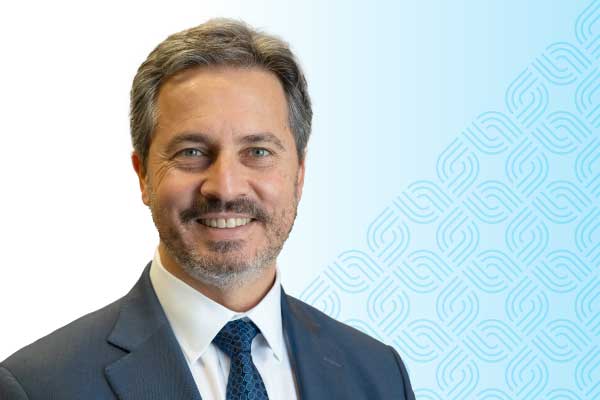
Alberto G. Musalem
The Federal Reserve Bank of St. Louis announced on Jan. 4, 2024, that Alberto G. Musalem would be its next president and chief executive officer.
In this role, Musalem represents the Eighth Federal Reserve District in national monetary policymaking on the Federal Open Market Committee and leads the 1,500 employees of the St. Louis Fed. He began his role on April 2, 2024.
Full Announcement | Musalem’s bio | Speeches & Remarks | Community Engagement
On Jan. 4, 2024, the Federal Reserve Bank of St. Louis announced that Alberto G. Musalem will be its next president and chief executive officer. He will begin his role on April 2, 2024.
“Alberto will be an outstanding president and CEO of the St. Louis Fed,” said St. Louis Fed Director Carolyn Chism Hardy, president and CEO of Chism Hardy Investments LLC in Bartlett, Tenn., and deputy chair of the Bank’s Search Committee. “As an experienced economist, former Federal Reserve leader, collaborator and communicator, he comes with the exceptional technical expertise and leadership abilities needed to contribute to effective policymaking and advance a large organization in service to the public. Alberto is a mission-focused leader, and I am confident he will work tirelessly to promote a healthy economy for all in representing the diverse views of the constituents across the Fed’s Eighth District.”
Musalem has more than 27 years of public and private sector experience in economic policy, finance and markets. Most recently, he was CEO, co-chief investment officer and co-founder of Evince Asset Management, a quantitative investment technology company. Prior to Evince, he was executive vice president and senior advisor to the president at the Federal Reserve Bank of New York, where he was head of integrated policy analysis, international affairs and a member of the Bank’s Management Committee. Prior to the New York Fed, he was managing director, partner and global head of research at Tudor Investment Corporation focusing on the interaction of economic policy, macroeconomic performance and markets. As an economist at the International Monetary Fund, he worked with IMF teams and country authorities on monetary policy and inflation targeting frameworks, fiscal responsibility rules and banking systems during the emerging market crises of the late 1990s.
On Sept. 12, 2023, the St. Louis Fed posted a recording of its Sept. 7 virtual public engagement forum about the presidential search process. This live Q&A featured Jim McKelvey, Search Committee chair; Carolyn Chism Hardy, Search Committee deputy chair; and Tom Daniels, a representative of Spencer Stuart (the executive search and leadership consulting firm supporting the search). They were joined by François Henriquez, St. Louis Fed executive vice president, chief administrative officer and general counsel. The event was moderated by Karen Branding, St. Louis Fed senior vice president and corporate secretary.
On Aug. 30, 2023, the St. Louis Fed announced a virtual public engagement forum to take place Sept. 7, 2023, from 1-1:45 p.m. CT. Panelists helping to lead the presidential search will participate in a moderated Q&A discussion guided by questions from the public. A recording of the event will be posted to the presidential search website for anyone interested but unable to attend the live event.
On Aug. 28, 2023, the St. Louis Fed announced it was formally launching the search process to hire its next president and CEO. The Federal Reserve Bank of St. Louis President and CEO Job Profile (PDF) described the position’s responsibilities in detail, along with desired qualifications and experience. Indications of interest, nominations and referrals for the role were to be submitted along with a cover letter and supporting information (e.g., bio, resume or CV) directly to Spencer Stuart no later than September 28, 2023, at the following email address: stlouisfedpresident@spencerstuart.com. Those interested were encouraged to submit sooner than later.
Members of the public wishing to provide input regarding the search were invited to email presidentsearch@stls.frb.org. Questions not addressed in the FAQs also may be directed to this mailbox.
Members of the news media may contact Laura Girresch at laura.e.girresch@stls.frb.org.
On Aug. 16, 2023, at the direction of the Search Committee, the St. Louis Fed retained Spencer Stuart, a global executive search and leadership consulting firm, to assist the Search Committee in conducting an open, robust and inclusive search. Selection of Spencer Stuart followed a formal procurement process, including interviews of several qualified firms by Search Committee members.
Additional information will be available soon, including the job profile; a secure link for submitting interest directly to the search firm; and a dedicated email address for the public to provide input and comments.
On July 13, 2023, James Bullard, president and chief executive officer of the Federal Reserve Bank of St. Louis, announced that he will be leaving the Bank effective Aug. 14, 2023, to become the inaugural dean of the Mitchell E. Daniels, Jr. School of Business at Purdue University, effective Aug. 15, 2023.
In accordance with the Federal Reserve Act and confirmed by the St. Louis Fed board of directors, the Bank’s first vice president and chief operating officer, Kathleen O’Neill Paese, assumed the duties of interim president and CEO, effective immediately.
Also in keeping with the Federal Reserve Act, the St. Louis Fed’s board of directors formed a Search Committee composed of its Class C and Class B directors. The committee is in the preparation phase of the search, including retaining a search firm and developing the job profile.
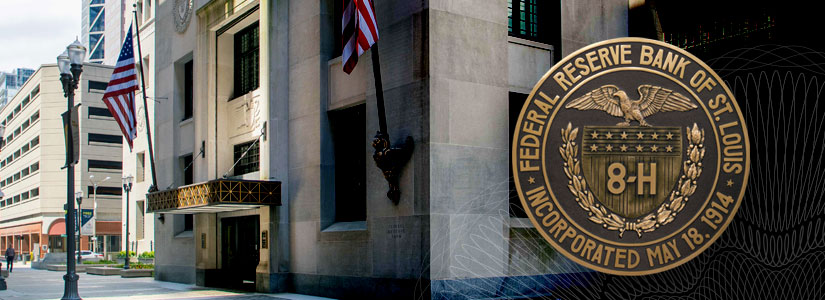
Presidential Search Committee
On July 13, 2023, the St. Louis Fed’s board of directors formed a Search Committee comprising eligible Class B and Class C directors, who are in place on the board to represent the public. Note: Class A directors, who are elected to the board by member financial institutions, are not permitted to take part in the selection of a Reserve bank’s president (or first vice president), nor are they allowed to sit on search committees for those positions.
Message from the Search Committee Chair
The Search Committee was focused on finding a new Reserve bank president and CEO to promote financial stability and a healthy economy for all. The person in this role should represent the views of constituents across the Eighth Federal Reserve District, lead a talented and high-performing workforce, and have an important voice in monetary policymaking—among other essential duties.
2023 Search Committee Members
-
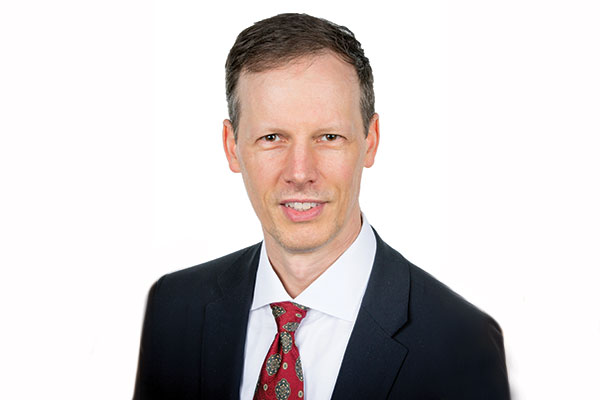
James M. McKelvey Jr., Chair (retired from board Dec. 31, 2023)
Founder and CEO, Invisibly Inc., St. Louis
Class C director -
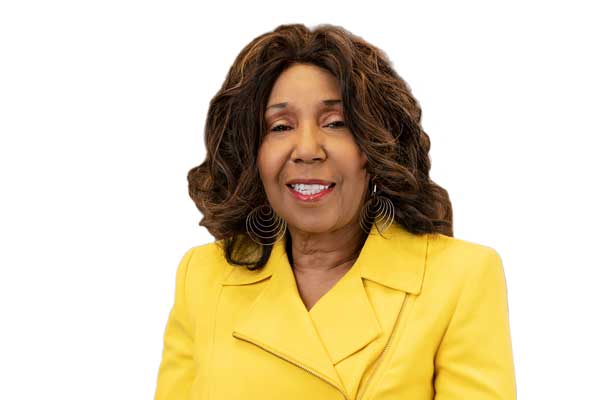
Carolyn Chism Hardy, Deputy Chair
President and CEO, Chism Hardy Investments LLC, Bartlett, Tenn.
Class C director -
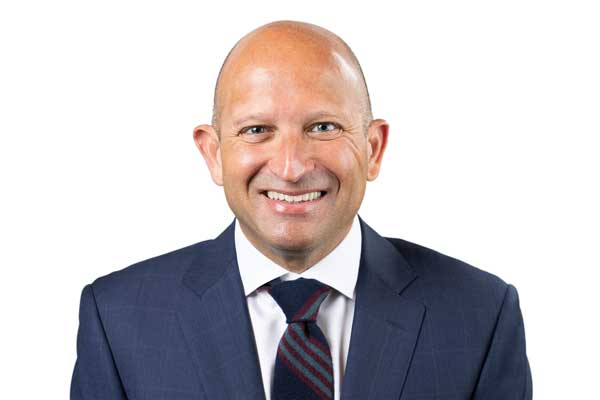
Lal Karsanbhai
President and CEO, Emerson Electric Co., St. Louis
Class C director 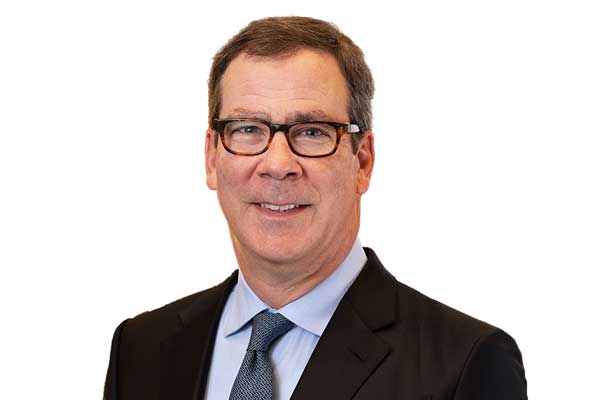
R. Andrew Clyde
President and CEO, Murphy USA Inc., El Dorado, Ark.
Class B director-
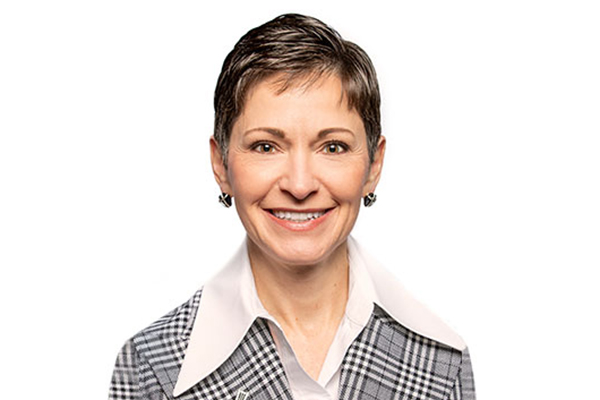
Penny Pennington
Managing partner, Edward Jones, St. Louis
Class B director -
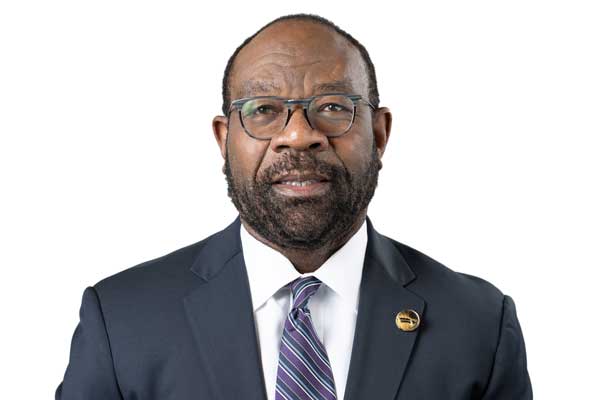
Michael Ugwueke
President and CEO, Methodist Le Bonheur Healthcare, Memphis, Tenn.
Class B director
Public Input and Engagement
A Robust and Transparent Search
Throughout the process, the St. Louis Fed Presidential Search Committee was committed to conducting a transparent search, with the Bank providing timely and widely available information.
Contact Information
- Members of the public wishing to provide input regarding the search were invited to email presidentsearch@stls.frb.org. Questions not addressed in the FAQs also were directed to this mailbox.
- News media: Please contact Laura Girresch at laura.e.girresch@stls.frb.org.
Video: Public Engagement Forum
The St. Louis Fed held a virtual public engagement forum on the presidential search process on Sept. 7, 2023. This live Q&A featured Jim McKelvey, Search Committee chair; Carolyn Chism Hardy, Search Committee deputy chair; and Tom Daniels, a representative of Spencer Stuart (the executive search and leadership consulting firm supporting the search). They were joined by François Henriquez, St. Louis Fed executive vice president, chief administrative officer and general counsel. The event was moderated by Karen Branding, St. Louis Fed senior vice president and corporate secretary. Transcript follows.

Karen Branding: Welcome, everyone, and thank you for joining today’s public engagement forum. We have folks joining us from all over our seven state Reserve Bank district, large cities and small towns in Illinois, Indiana, Kentucky, Tennessee, Mississippi, Arkansas, and Missouri. We also have folks joining from many other states outside of our Reserve Bank district. Thank you all for tuning in.
I’m Karen Branding, and I’m the senior vice president of external engagement and corporate communications here at the St. Louis Fed. I’m a member of the Bank’s management committee and the Bank’s corporate secretary. And it’s my honor to moderate today’s forum. We promoted this event heavily not only to our current and former directors, advisory council members, past event attendees, subscribers to our newsletters but also to our 200,000 Twitter or X followers, 24,000 LinkedIn followers, as well as 175 media contacts nationally and here in our district. And we sent it to leaders all across the Fed system and asking them to share it with their networks.
The goal was to cast a wide net because today is all about public engagement. And our aim is to get the word out about our search, and to help the public better understand how the process works and have an opportunity to engage and ask questions. We received several questions beforehand and when people registered. But if you have questions during the forum, please submit them through the chat function. We’ll get through as many as we can today.
And now it’s my pleasure to introduce you to our panelists. Joining me today are Jim McKelvey. Jim is the chair of our board of directors and the chair of our Search Committee. He’s the founder and CEO of Invisibly here in St. Louis and, as many of you know, the co-founder of Square, now Block. Welcome, Jim.
Jim McKelvey: Thank you.
Branding: Next to Jim is Carolyn Chism Hardy. She is the deputy chair of our board of directors and the vice chair of our Search Committee. Carolyn is the CEO of Hardy Investments and Hardy Beverages out of Tennessee. Welcome, Carolyn.
Carolyn Chism Hardy: Thank you.
Branding: Tom Daniels is with the Spencer Stuart Executive Search and Leadership consulting firm. He serves on its global board of directors and is senior member of the firm’s practices. Welcome, Tom.
Tom Daniels: Thank you.
Branding: Good to have you. And then, finally, my colleague here at the St. Louis Fed, François Henriquez. He is the executive vice president and chief administrative officer and general counsel for the Bank, a member of the Bank’s management committee as well. And François and I are the support team to the Search Committee.
Welcome, everyone, to today’s panel.
I thought before we get things going, I’d start with a brief overview of the background of the events that brought us up to today. So back at the St. Louis Fed’s July 13th board meeting, the directors accepted the resignation of our then-president, Jim Bullard, who was retiring his post here at the Bank to become the dean of the Purdue business school. Now, the Federal Reserve Act is very prescriptive about how the process works for appointing a new Reserve Bank president.
The first step is for the directors to appoint a presidential search committee, which by law must be composed of a subset of the Bank’s board. So let me back up and explain how Reserve Bank boards work. By law, Reserve Banks have nine directors. Three of them are what are called Class A directors. And by law, they’re elected by banks in our Reserve Bank district to represent the interests of banks.
There’s also three Class B directors, and they are elected by the banks in our district to represent the public, and then, finally, three Class C directors who are appointed by the Board of Governors in Washington to represent the public. So, we have nine directors, but by law only the Class B and C directors can appoint a Reserve Bank president. And their appointment is subject to the approval of the Board of Governors in Washington. Class A directors, again, those that represent the interest of banks, are precluded by law from participating in the appointment process to avoid actual or perceived conflicts of interest.
So, at our July board meeting, the directors appointed a Presidential Search Committee that includes all six of our Class B and our Class C directors. And it’s an outstanding Search Committee. I believe there should be showing on your screen now the members.
And I’d like to introduce them to you orally here. First, Andrew Clyde-- he’s the CEO of Murphy USA in El Dorado, Arkansas; Penny Pennington, the managing partner of Edward Jones, based here in St. Louis; Michael Ugwueke, CEO of Memphis Le Bonheur Healthcare in Memphis; Jim McKelvey, who I’ve just introduced; Carolyn Chism Hardy, also just introduced; and then, finally, Lal Karsanbhai. He’s the CEO of Emerson, which is also based here in St. Louis.
So, from the very start, this Search Committee has been committed to conducting a search that’s robust, transparent, fair, and inclusive. And their first step was interviewing several highly qualified executive search firms to help in the process. Ultimately, they retained Spencer Stuart, and their job is to assist the Search Committee in all aspects of the search. Spencer Stuart has a great track record with other Reserve Bank president searches, including Susan Collins at the Boston Fed, Raphael Bostic at the Atlanta Fed, Neel Kashkari at the Minneapolis Fed, John Williams at the New York Fed, and many more that could be named. The point is they know their work, and they’ve worked closely with our Search Committee to prepare a detailed job description of the position and the key competencies that the Search Committee said that it’s looking for.
Now, also, meantime back here at the Bank, the St. Louis Fed stood up a presidential search webpage to help make this process more transparent to the public. So there, you can find lots of information about the search, ongoing updates-- and we will keep that updated as we work through this process-- who’s on the Search Committee, the detailed job profile, a confidential email address that goes directly to Spencer Stuart, where you can apply, or you can nominate someone else that they should consider. There’s FAQs about the search.
There’s a spotlight on what it’s like to live in St. Louis. And there’s an email address there that the public can send in comments or input here to the Bank about the process. I encourage all of you to spend some time on the site and encourage others to do it too. And be sure to share your input with us at that email address.
So, we formally launched the search last week on August 28th. And we did a press release, social media, e-blasts to our networks and communities all over our seven-state Reserve Bank district and to our counterparts in all 12 Reserve Banks for them to help spread the word. But, again, that was just the first step in our public engagement process. Today’s forum is designed to help increase awareness of the search, and answer questions from the public.
In our audience, we have current and former directors, advisory council members, folks who’ve attended our events here or in our branch locations but also bankers across our district, people from community development organizations, businesses, nonprofits, universities, and many other interested citizens. Thank you all for joining us. And thanks again to those who submitted questions when you registered.
Just a reminder to all-- please use the chat function to submit your questions during the forum. We’ll get to as many as we can in our 45 minutes together. So, with that as a startup, let’s dive in, and we’ll kick things off with a few words from our Search Committee chair and deputy chair. Jim, would you like to start?
McKelvey: Sure. So, thank you for the invitation to be here today. And this is a very exciting time at the St. Louis Fed. But we throw around the word “Fed” like we know what it means. And Fed stands for “Federal” or “Federation.”
And the thing that people don’t understand is that the Fed is actually 12 independent regional Banks and then the Board of Governors in D.C. And each of these Banks is part of a federation, which means independence and independent thinking. And the independence is key to our success because not everybody agrees, not everybody thinks alike, and the person who leads the St. Louis Fed is really speaking on behalf of people that live in seven different states. But the people in those states also kind of look a lot like the rest of the United States. So, it’s a very important position, and it’s very important for this person to have an independent and clear voice.
Jim Bullard was a fantastic leader at that. And we’re looking for that next fantastic leader.
Branding: Thanks, Jim. Carolyn.
Chism Hardy: You know, Jim, I agree with that. And, again, I’d like to start off by saying first thank you for tuning in and submitting your questions in advance. You know, it wasn’t so long ago that the mystique around communication strategy at the Fed was the fact that there was lack of transparency. And people didn’t know much about the Fed, as Jim said.
But the financial crisis of 2007 through 2009 changed all that. And the Fed has become more open, accessible and transparent. Today, as part of that discussion, Federal Reserve Banks by their design are the voice of Main Street. And engaging with the public is at the heart of it.
And that’s especially the case as we search for our next Reserve Bank president. This is a real big job, and Jim and I are really excited about participating with it.
McKelvey: Yeah.
Branding: Great. Thank you both. OK. Well, let’s dive in. So, we’re going to go to our first set of questions. And I think the first one really gets to something several people asked, which is has the Search Committee made a Ph.D. in economics a requirement for the job?
So, Carolyn, would you take that one?
Chism Hardy: Well, if you look at the job profile, which is the best source of what we’re looking for in the next Bank president, it includes a list of ideal qualifications. It’s about 10 pages long. So, I recommend that you spend a lot of time with it. It will give you a good insight into how complex the job is and the many qualities and competencies that are required.
Also, one thing you’ll see that it doesn’t require is a Ph.D. in economics. But monetary policy and representing the voice of the Eighth District and at the FOMC table is one of the most important parts of the job. So, the ideal candidate needs to have, among other things, respected credentials in macroeconomics or recognized stature in the field that contributes information that’s vital to monetary policy-making.
Branding: Great. Thank you, Carolyn. And Jim, other questions get to more of a broader look at what exactly are you looking for. Could you expound on what Carolyn said and just take it a little further in terms of the different qualifications we’re looking for?
McKelvey: Yeah. So the first thing we’re looking for is someone who really understands monetary policy. And monetary policy is this sort of misunderstood thing. Now, among economists, of course, they all understand, but monetary policy really affects real people.
It affects Main Street. It affects all of us. It affects what your car costs and your house costs, and these decisions that we make in these Banks are really important. So, you have to, first of all, understand that, which we think is sort of a minimum thing. But then we’re looking for a leader, somebody who can communicate very well and, in some cases, persuade.
So, one of the things that the St. Louis Bank has been famous for over the last 50 years is being a pretty loud voice in the Federal Reserve System as to what’s happened and what is going to happen. And the thing that Jim and his team did exceptionally well was he called his shots early and led us, really, as not just the St. Louis region but as the United States in monetary policy. And this has a worldwide impact. So just because it’s based on Main Street doesn’t mean it doesn’t affect the rest of the country and, in fact, the rest of the world.
Branding: Great. Thanks, Jim. OK. I hope that answered those questions. And there’s more, as Carolyn said, in that job profile that really gets to the job qualifications in a very detailed way.
So, another question came in was does the candidate need to have strong ties to one of the states and the district in order to represent it well? And how much does the Fed’s role of representing the district play into the selection of the next president? So, Carolyn, you’re out of Memphis. You’ve been very active at our branch level as well as now at the head office board level.
Why don’t you speak to that?
Chism Hardy: Well, as a board, we recognize that it’s important that we accept applications from all candidates from across the country, not just the Eighth District. Regardless of whether they live in St. Louis, or they live in Memphis, or wherever, we want to make sure that we’re properly represented.
So, I want to note that one of the things that you must be is a U.S. citizen. But you do not have to live in St. Louis. So, no, you do not have to live in one of the states in our district. But we do expect the next president, once named, to live in the St. Louis area.
This isn’t a remote job at all. We need you here at the office. And the president needs to have a genuine interest in getting out into the community, which is one of the things that Jim did. He was an active listener.
He listened not only to the people at the banks. He listened to the people in the community. He listened to just the community leaders. So, we saw a lot of Jim.
He really helped us, helped the community understand the role of the Feds in the community. So, no, they do not have to live in St. Louis, but they do have to move to St. Louis. This is not a remote job, and they must be a U.S. citizen.
Branding: Good. Thanks a lot, Carolyn. OK. It looks like there’s a question that’s been asked about the timeline. So, Jim, why don’t you talk about the timeline?
McKelvey: So, typical searches take six to nine months, although I would say that we’ve already seen very strong interest in this job. And we’ve actually even seen candidates who’ve already submitted who we’re looking at and saying, well, these are impressive candidates. We’re looking for more, and we want it to be open.
So, one of the reasons we’re doing this broadcast is to basically shout out to the world, look-- this is a fantastic place. There are a lot of pressures. There are a lot of requirements, and there are a lot of constraints. But this job gives you one of the most significant voices in the world economy.
So, we don’t take that very lightly, and we’re not going to rush the search. So, it’s moving quickly. If you know of somebody or you are that person, get your name in quickly but months, not years.
Branding: Right. Exactly. And we have on our website-- on that presidential search webpage, there is a confidential email address to go straight to Spencer Stuart to follow up on what Jim just said in terms of expressing your interest. But, Tom, there’s a question that came on that’s about the timeline. But it says, how do you know it’s not going to drag on excessively?
So, this is your business. Tell us your thoughts about this question.
Daniels: Right. Well, first of all, thank you. It’s great to be back in St. Louis. One of the names you forgot to mention was Jim Bullard because this brings back memories of 2007, 2008, when we helped the Search Committee with the replacement of Bill Poole. So, it’s great to be here.
[CHUCKLES]
So, there’s two primary themes that I think affect the timing of a search. One is the attractiveness of the role, and the second is process. In terms of attractiveness of the role, this is an incredible opportunity. And as Jim alluded to already, there’s already been strong interest.
This is leading institution with almost 1,500 people across seven states and being the voice across the district. It’s also St. Louis has a long-standing reputation for being a bold and innovative thinker when it comes to monetary policy. And that’s a great legacy that I think a lot of people would love to embrace.
And then, thirdly, it plays a critical role in not only the Fed system but in the U.S. Treasury, supporting the U.S. Treasury. It also supports FRED, which is the leading source of macroeconomic data in the world. And it also supervises the second largest number of community banks in the country.
So, it plays a leading role in that. So, this is very attractive. Secondly, process-- in terms of that, this is a Search Committee not only with Jim and Carolyn but with the other B and C directors that has a great cross-representation of business leaders, community leaders, entrepreneurs, and innovators from across the district. And every single one of those directors is very involved in their communities, and they’re engaged in the process. And that’s really, really critical.
Secondly, there is a position specification that’s on the website which is very clear and thoughtful. It is aspirational, but it’s not overly narrow and prescriptive, which I think is something that demonstrates that the committee wants an open and inclusive process. And then, thirdly, one of the most important things is to have continuous and ongoing, rigorous vetting. That includes background checks, backchannel referencing, and a clear understanding of any potential issues that come from a recruitment, from a relocation, or any potential conflicts.
And so we’re very committed, and we’re working with the team here in St. Louis to make sure that we identify all of that up front.
Branding: Great, Tom. Thanks a lot, and thanks for already, the whole Spencer Stuart team, knowing so much about the St. Louis Fed and the Fed System. So, we know we’re in good hands.
Daniels: We learn every project, and every search is different. So, we are so excited to be going on this journey with you. Thank you.
Branding: Yeah. Great. We are too. OK. François, I’m going to turn it over to you now because there’s been a few questions along the way about hurdles. And so, can you talk about the restrictions that all candidates have to be held to in order to be considered?
François Henriquez: Sure, Karen, and this is very important. So, I’m glad that question came up. All presidents have a special obligation to maintain the integrity and reputation of the Federal Reserve System. And to make sure that people understand what those requirements are, the Fed has a number of rules and regulations. And I’m just going to mention a couple of them right away.
But first, like everybody who’s an employee of the Federal Reserve Bank, they’re subject to a code of conduct that focuses on making sure that there are no actual or apparent conflicts of interest. So that’s number one, and that would be true for any employee of the bank. But on top of that, the Board of Governors has its own code of conduct for senior officials of the Federal Reserve System. And that, of course, would apply to our president too.
And there are several heightened requirements, so a couple of things. One is they have to do everything that they can to maintain the integrity, dignity, and reputation of the system. They have to scrupulously avoid any conduct that might embarrass the System or impair the System’s operations. They have to ensure that their personal financial dealings are always above reproach. And finally, they have to ensure that any information that they obtain remains confidential and is never used for personal gain.
And then, finally, as a member of the FOMC, the president would be subject to even further restrictions. And this is fairly new, and some people may not be aware of this. But now Federal Reserve Bank presidents are subject to investment and trading limitations.
These are very, very detailed, very complex, and in some respects rather restrictive. We don’t have time to go through them all here right now, but I would invite anybody who’s interested to go to the FAQs on that presidential website that Karen mentioned. And it’s been mentioned several times.
They’re all laid out there, and we will make sure that anyone who’s truly interested in this job understands what those restrictions are. I wouldn’t call them hurdles. You can get over them, but they’re important. And people should understand what they are.
McKelvey: And they apply to a family as well.
Henriquez: Thank you very much, Jim. It’s not just for the candidate or the president. It applies to their spouse and their minor children. And by the way, if you’re a trustee of a trust, all of those assets would have to be taken into consideration as well.
Branding: And there’s no margin for error, right?
Henriquez: There really is not. This is not an area where creativity is an option.
[CHUCKLING]
Branding: Yeah. Thanks, François. Yes. And so go to the website and make sure you’re familiarizing yourself with those restrictions. It’s in the FAQs on the site.
So, a question came in about age restrictions. What are the age restrictions, Jim, that apply here?
McKelvey: So, all Reserve Bank presidents have to retire at age 65, unless they assume the position after age 55, in which case we’ll give you 10 years. So, you’ve got 10 years, but there’s a mandatory hard stop at 75.
So, if you’re under 55, don’t worry about it. If you’re over 55, you get 10 years. And if you’re 75, well, that’s our cutoff.
[CHUCKLING]
Branding: Yeah. And I think it’s 10 years, 75, whichever comes first.
McKelvey: Yes, yes. It’s 10 years up to 75, so there’s a hard stop at 75.
Branding: Yeah.
McKelvey: Yeah.
Branding: OK. Great. So what about a minimum age?
McKelvey: There’s no minimum age, but you have to have the gravitas to run a very complex organization. So, this isn’t a first job here.
[CHUCKLING]
You will have a proven track record. You will have the ability to lead an organization and that proven ability. So, we’re not looking for first-timers.
Branding: Right. Yeah. Thanks, Jim. OK, Tom, I’m going to go back to you. Here’s a question about whether the public gets to weigh in on the candidates. How transparent are we really going to be? So, would you talk about the issue of confidentiality and how it actually serves the process?
Daniels: Sure. That’s a great question. So, we’ve been fortunate. This will be the 10th Fed president search we’ve done over the last 10 years. One of the things that you can count on is these are always heavily scrutinized by the media, by policymakers, by market participants.
It’s really, really important to maintain confidentiality throughout to preserve the integrity and the independence of not only the process but also the Bank and the institution. Secondly, from a candidate perspective, we’re going to be talking to leading executives, policymakers, community leaders. And if they declare their interest, they’re putting themselves and potentially their institution at risk.
And at the end of the day, there can only be one successful candidate. And one of the things that we have to guarantee in these processes is that they feel that this is a safe place that they can come and be part of the process. These are not searches that are necessarily done in the court of public opinion because the way these processes are done is you learn about people in interviews, in doing backchannel references, in doing background checks. So it’s really, really critical.
We want to be open and inclusive, but preserving candidate confidentiality is critical.
Branding: Thanks, Tom. And I’ve said it before. I’ll just punctuate it again based on Tom’s remarks. On that presidential search webpage, there is an email address that goes directly to Spencer Stuart.
It’s confidential. It does not come to the Bank, so no one here sees that. So, either you’re nominating yourself, or you’re nominating someone else. That’s going directly to the search firm team to preserve that confidentiality.
Daniels: Right.
Branding: Yeah. Thank you. OK. It looks like here we’ve got a few questions about inclusivity. So, Carolyn, I’m going to toss this one to you. Talk about how and what we’re doing to make this an inclusive search.
Chism Hardy: OK. As you said earlier, one of the first things that the Search Committee agreed upon was that we were committed to a search that is both robust. So, we’re looking for a really deep pool of candidates, which we’re confident that Spencer Stuart will deliver. We have a search that’s transparent, which is by this podcast here today, we’re being transparent.
We’re going to tell you what we know. We’re going to answer your questions that you’ve submitted earlier. And we’re also going to be inclusive. And then, of course, Spencer Stuart has a track record of being inclusive because as you look at their searches that Tom talked about earlier, you look at the Boston Bank, Minneapolis Bank, Cleveland, Atlanta. They’re all a diverse pool of candidates, but also we don’t have a predetermined candidate.
This is an open search. We’re looking for new talent, fresh talent that has a complex background, that can lead a complex organization. We’re also a diverse Search Committee. As you see, Jim and I, we’re about as different as day and night. OK?
[CHUCKLING]
McKelvey: We’re kicking each other under the table.
Chism Hardy: We’re kicking each other under the table.
[CHUCKLING]
Chism Hardy: The search team themselves is diverse. Tom has an amazing team that works with him. And we’ve been very impressed with just their reach, their pool, just the people they’ve known over the years, and the talent they can bring to the table. And by being transparent about the search and by engaging the public like we have, we feel that inviting public comment will deliver on that inclusivity and will ensure that we have a robust search.
And we get the leader to replace Jim that we’re looking for.
Branding: That’s great. Thanks, Carolyn.
Chism Hardy: But also I want to mention the last thing, that email address. I know we can’t say it enough time. Please go to the email address that goes straight to Spencer Stuart. The presidential search website is for you to make sure that it holds us accountable for a robust process and also ensures that if you have someone you want to recommend, send it to Spencer Stuart.
Go to the website.
Branding: That’s great.
McKelvey: Yeah. And the diversity is basically ensured by the quality of the candidates that we get. So, if you know somebody, if you think you know somebody, this is a golden opportunity.
Chism Hardy: Right.
McKelvey: So, we will have a better chance of making a great selection if we have more people to choose from. So that’s where the opportunity comes.
Chism Hardy: And we don’t want you to vet them.
McKelvey: Yeah.
Chism Hardy: That’s what we hired Spencer Stuart for. You make the recommendation.
McKelvey: Right.
Chism Hardy: Let Spencer Stuart do their job.
Branding: Yeah. That’s great. I appreciate that, and I want to be clear too. We have two email addresses on our website. One is confidential, and it goes straight to Spencer Stuart, and that’s for nominations or referrals.
There’s one at the bottom of that webpage, which is for the public to send input to the Bank, questions about the search or comments about the search. And so those are emails we will see. And we appreciate them too. So, again, two email addresses, two different purposes.
OK. It looks like there was a question asked. I think this one actually came in beforehand about St. Louis and how is St. Louis a desirable place to live. And being from St. Louis, I’ve often heard of people referred to the Midwest as the flyover zone. So, I thought this was an apt question.
And, Jim, talk a little bit about your hometown, St. Louis, and what it’s like to live here.
McKelvey: So, born and raised in St. Louis, but I’ve lived all over the place. I’ve lived in London, New York, San Francisco, Washington D.C. St. Louis is a fantastic place. It’s particularly good if you have a family because their rich cultural institutions.
There is also this fantastic combination of what I would call an easygoing work ethic, which is people get it done, but they don’t make a big deal of it. And there’s this Midwestern modesty that I find really wonderful. But I think the most appealing thing for me as a parent is that St. Louis has this deep culture of education.
We have tremendous schools from pre-K up through Washington University and SLU. We have fantastic support. You’re respected if you’re smart here, so it’s a good place for academics.
It’s a good place for people who are excellent at what they do because there’s this respect here. And it’s not a flashy city. So, it really benefits those who have substance.
Branding: Yeah. That’s great. That makes me feel proud hearing it, and I’ll add a P.S. on this. There’s a phrase, and I don’t know that it’s exactly true. But it says you can get anywhere in St. Louis in 20 minutes.
The point is you’re not going to spend two hours a day commuting here. You’ll have that time for your life. And actually, on our interstates, when you’re trying to get over, you’ll actually now and then encounter people that go like this-- go on, get in.
So, we’re friendly people.
Daniels: It’s not like New York.
[CHUCKLING]
McKelvey: And maybe I should say one thing about the crime statistics because if you’re not from St. Louis and you Google St. Louis, you will see that we have one of the highest statistical crime rates in the country. That’s a mathematical anomaly because St. Louis City is not part of any county. It’s its own little entity.
And so when they do the math on metro area crime statistics, our denominator is so much smaller that we end up getting these sort of laughably high statistics relative to other cities. So if you were actually to do the math the way we do the math for other sort of major cities, we’re maybe top 30 in crime as opposed to top two.
Branding: Right. Yeah. That’s exactly right.
McKelvey: Yeah.
Branding: So thanks for sharing that, Jim, but I’m going to stay on the St. Louis question for a little bit and taken a little bit different direction. I’m going to go to you, François, because Jim mentioned our history and such. So as an executive who moved to St. Louis without any ties here and probably only knowing St. Louis maybe from the news or from our history, can you talk about your experience as a person of color?
What were your perceptions about St. Louis before you came here and now that you’ve been here?
Henriquez: You know, Karen, I get that question a lot. And, candidly, coming from the East Coast and thinking about coming to the Bank, I was doing my research. And I did read about some of those statistics. And I thought it would be a big challenge. I really did.
Now I’ve been here five years. And I have to say, honestly, it’s like any other medium-sized city. You’d have to be a little careful about what you do, but everybody has to do that in any city. But, more importantly, you know, I have found many, many great friends here.
I have developed some deep friendships. I get to work with some incredibly smart and talented professionals. I’ve gotten involved in my community. I’m part of a neighborhood, so it’s very exciting for me to live here. And it turns out it wasn’t much of a challenge at all. So, I was probably more apprehensive than I needed to be.
But there’s more about that I’d like to say. And that is when I talk to people locally, I understand that people in St. Louis recognize their history. And they’re also very, very committed to shaping a new future for St. Louis. And that’s really exciting to see, and that’s nowhere more true than right here at our board of directors.
We have many wonderful, engaged directors who are civic leaders and community leaders. And they’re committed to growth and a sterling future for St. Louis. And the great thing about taking this job, whoever is our next president, would be you’d be rubbing shoulders with all of those people and have an opportunity to make change and be part of an exciting and vibrant future for St. Louis.
So, it’s not really much of a challenge at all in the first way. But it’s a great challenge and opportunity in the second way.
Branding: Thank you, François.
Henriquez: Sure.
Branding: I appreciate that. OK. The next one I’m going to start with Carolyn, but, Jim, you weigh in too. There were a few questions that came in before registration or during registration that asked for what are the priorities for the new president in his or her first 100 days. What might they be?
So care to share your thoughts on that, Carolyn? And then, Jim, why don’t you follow Carolyn?
Chism Hardy: OK. The first 100 days.
McKelvey: Well, why don’t I take a start on this one? I think you get out and travel. You’ve got seven states. You’ve got a lot of diversity in the people that you represent.
And I would think that the first 100 days we’re not going to see you in too much. They would be you’re going to be on the road. You’re going to be listening, and you’re going to be finding out who you represent. And there are a lot of different voices, and ingesting all that would certainly take three months of a smart person’s time.
Now, during that time, you’re going to be running a 1,000-person organization and getting to know all this other stuff. And there’s a lot of work going on, but I would think the first 100 days we would not want to measure it in terms of specific output. I’d look to measure it in terms of this sort of humility to go and listen.
Chism Hardy: And, you know, Jim, as a director, I would expect any candidate and every candidate to be able to answer that question. But as a director, what I expect from the new president during that first 100 days-- I expect him to get out in the Eighth District in every corner of that district. I expect him to meet with every bank, every community leader, and really understand the pulse of that community, whether we’re talking about Mississippi, El Dorado, Arkansas, whether we’re talking about the Mississippi Delta.
They need to understand all those communities, and try to understand some of the issues, and help them. The St. Louis Fed and what they do here is so robust. They should be able to take that talent, our talent here in St. Louis, and actually direct it to those communities to help them with those issues in those communities.
Also, I expect him to take a deep dive into learning about the functions of all aspects of the Bank and the pressing issues at the Bank. And I also expect them to know their Fed counterparts because we talked about one Fed, one now. We expect them to act as a team across all 12 districts.
If they don’t understand them, how can they act as a team? So, our expectation on those first 100 days, they’re going to have to work hard. They’re going to be everywhere. We expect them to do everything, but that’s just-- we said it’s a complex job. You need to have complex qualifications; therefore your first 100 days is going to be a challenge. That’s why we’re looking for the right leader.
Branding: And then right off the bat, they’ll have FOMC meetings that they need to attend and big Bank decisions to weigh in on.
Chism Hardy: Yeah. Well, they’ll have those day-to-day things that doesn’t go away.
Branding: That’s right.
Chism Hardy: Yeah.
Branding: OK, interesting, Thanks a lot. It is a question that every candidate should be prepared to answer, I guess, for any job. OK. Let’s see. Here’s a couple of quick questions. Someone asked, is the Search Committee looking for candidates inside the Fed as well as outside the Fed? Is one more important than the other?
Branding: Carolyn?
Chism Hardy: No. We’re looking for both. We’re looking for the right candidate for the right fit. We don’t care whether it’s inside the Fed or outside the Fed. We talked about that 10 pages of qualifications. We didn’t say anything about being inside or outside.
So it’s important that they review the job profile, be able to meet the job profile, and understand that this is a complex organization. It is going to take someone with the right leadership skill and the right leadership experience, just like Jim said. You’re not going to be a five-year or one-year leader and run this organization. It’s not possible. So we don’t care.
Branding: OK. That came through loud and clear. Thank you, Carolyn. Here’s another one, a quick one. Jim, might be one for you.
The question came in asking whether the Search Committee has any expectation of the new president in terms of their philosophy on managing a hybrid workforce or remote work. So thoughts about that.
McKelvey: We expect you to manage your workforce. Look, it’s an open question in all areas of business and industry right now. We don’t know what the right balance is. Do we force them to go back to work? Do we let them work remote forever? I mean, can you really do good work in your pajamas? Some people can. Some people can’t. That’s for the new president to decide.
Chism Hardy: Right.
McKelvey: So, the one thing we’re going to say is you’re going to do your work from St. Louis.
Chism Hardy: Right.
Branding: Yeah. And you didn’t put anything in that job profile about hybrid work or mention that.
McKelvey: No, it’s… Do what works but understand that the role of the leadership-- I’m sorry-- the role of the president is here in St. Louis.
Chism Hardy: Correct.
Branding: I’m just communicating with my question people who are forwarding me the questions. So, here’s a question that did come in early. But given that we’re kind of coming down the home stretch here, I thought it might be one that’s a nice kind of toward the end of a conversation question.
And it says, why is this a great job, and how can we be sure it will attract what you say you want, which is the next great leader? So, Jim, would you share on that?
McKelvey: So, this is pretty complex. If you actually look at the voice of the Federal Reserve System, the number one voice is obviously Chairman Powell. The number two voice was Jim Bullard, the former president of our St. Louis Fed. And he was the number two voice on the world stage because the Federal Reserve is the biggest, most important central bank in the world.
And so if you’re leading that institution, it gives you a very loud megaphone. But there are two caveats that I’d want to put in there. First of all, the reason Bullard held such a great voice was that he was a fantastic economist.
They listened to him because he was right. Talking to Jim Bullard or talking to Chris Waller, who was also here at the St. Louis Fed, it was like getting a little glimpse into the future of what’s about to happen. And one of the reasons that St. Louis has this sort of outstanding reputation is not because we’ve got some sort of telegenic leader.
It’s that we had a great economist who had a pulse of the central part of the United States, and that just mattered. So, people wanted his opinion. It wasn’t the way he packaged it up.
But the second thing I’d say is that the packaging does matter. And the ability to communicate the complex economic equations, I mean, the math matters. But math puts most people to sleep, and it confuses a lot of people. Bullard was able to communicate clearly what it meant to me as a person.
And that ability to communicate, especially on behalf of a Midwestern district, is super important. So, we’re really looking for somebody who can do the math and make the policy but then communicate that to the world.
Branding: Wow. Thanks a lot, Jim. Appreciate that. Carolyn, anything you want to add to that question, what makes this a great job?
Chism Hardy: The only thing I would add is that I’ve come in behind other leaders who were leaders in organizations that I’ve worked for. And everybody loved the guy that was there before me or gal and just thought they were amazing. And when I go into the organization, I try to understand what’s good about that organization and what’s absolutely amazing.
And then I look at what are we going to do to take it to the next level. And that’s what we’re looking for in this leader here. We’re looking at-- Jim was an amazing leader. He did some amazing things, but here’s our opportunity to look at a clean sheet of paper, and take the good, and then say what are the opportunities to take it to the next level.
And so, I think this is an amazing time. I think Tom and his team has done an amazing job of helping us with the profile and identify who is the next leader. How do we make sure we have that person that’s a visionary like Jim was? How do we find that person who was a great communicator at all levels, not just the Ph.D. but just that bank manager at a bank branch? He can communicate at all levels.
And so how do we take the good, how do we take the amazing, and then how do we look for the parts that needed to be fixed to take this Eighth District to the next level-- that’s what I think we need to find. And that’s what we’re charging you with.
Branding: That’s great, Carolyn. Thank you both. That’s terrific. Well, I know we have five minutes left, and I wanted to give each of the panelists an opportunity for final remarks.
So, I think we’re going to go that way. I don’t see any more questions that have come in. So, François, let’s start with you, and we’ll just work our way around the table. And, Jim, you’ll be our cleanup batter on this.
So just any final remarks about the search or what we’ve talked about here.
Henriquez: Sure. Well, one thing that we haven’t talked a lot about is the management team that’s already in place. And we’ve got a fantastic group of people that constitute our management committee. I say that not just because I’m on it or that Karen’s on it. But all of the people that we work with are just really, really great leaders. And so that will be a benefit to whoever takes this job.
They’ll hit the ground running, knowing that they’ve got the support of a fantastic team that works very closely together, who understands the strategic plan, who are excellent operators and can keep things going while they’re out traveling around, getting to know their colleagues across the Federal Reserve and across the Eighth District. So great team.
Branding: Thanks, François. Tom.
Daniels: So, three things-- one, first of all, it’s great to be back. And it was really just wonderful being part of the process, helping the Search Committee back in 2008, and then just watching the impact that Jim had not only on the Bank but across the district. But across the system and his ability, to Jim’s point, to contextualize kind of what was going on in the world of economics to the broader community is what made him such a powerful president.
Secondly, there’s already strong interest in the role, but we always want more. So please continue to send ideas. This is a Search Committee that’s committed to running a fair, robust, and inclusive process. So we want to make sure that all voices are being heard.
And, thirdly, this is as committed a Search Committee that I’ve seen. So we’re really excited. And I can tell you that on behalf of myself, John, and Sarah, my partners from Spencer Stuart who are working on this, this Search Committee and this board is committed to building upon the legacy, as Carolyn said, that Jim created and is really committed to finding someone who will not only maintain the prominence of St. Louis within the System but also its impact that it has not only across the Fed System but in the broader community as well.
So thank you.
Branding: Thanks, Tom.
Chism Hardy: I’m going to echo François’ comments about the leadership team. When I come in, I look to see who am I inheriting. And I will tell you this is an amazing leadership team. As a director, I really enjoy working with this board.
I mean, they’re always on time. They’re efficient. They’re thorough at what they do. I mean, they’re Johnny on the spot. And so anyone that comes into this organization, it is almost a gift.
When they talk about the St. Louis community, I’m from Memphis. So I’m not from St. Louis. I do enjoy visiting St. Louis, so I think they will actually enjoy the community. I love the arts here. We do visit St. Louis for the arts.
I love the professional sports because I love my professional sports in Memphis.
[CHUCKLING]
So, they have a lot of great sports teams. But as an organization, it is one of the top organizations. When I’m looking at organizations like the Fed, I’m from the private sector, of course. I’m looking at how do they function versus private.
And, I mean, their commitment to the job is like any other corporation throughout America. So anyone coming here would be extremely proud to be a part of this team.
Branding: Thank you, Carolyn. And now, Jim, over to you.
McKelvey: So, I’d like to kind conclude by just hoping we didn’t scare away the great candidate because we’ve talked in such glowing terms about Jim Bullard. But I think if we go back to the time when Bullard was new, he was a research economist.
Daniels: Right. And he was one level from the—
McKelvey: He was not somebody who I think would have checked all the boxes initially. And we were open-minded enough to give him the role when he began, and he grew into it. So, we’re not necessarily looking for some sort of super egomaniac who comes in, who is “I can do all that.”
What we’re trying to do right now is quite the opposite. I think we’re trying to reach out and look for somebody who’s incredibly talented but may have not been appreciated.
And if you know somebody like that, please give us their name.
Chism Hardy: Thank you.
Branding: Spoken like a true Midwesterner. I appreciate that, Jim. Thank you. Well, that’s about all the time we have left today.
I want to thank each of you on our panel for sharing these thoughts and your reflections. And most of all, on behalf of all of our panelists, the entire Search Committee, and all of my fellow employees here at the St. Louis Fed, thanks to all of you out there for joining us here today and being part of this process. We are proud and honored to be the voice of Main Street.
So please be sure to share any additional comments through the Bank email address on the presidential search webpage. Thanks again, everyone, for tuning in today. Bye-bye.
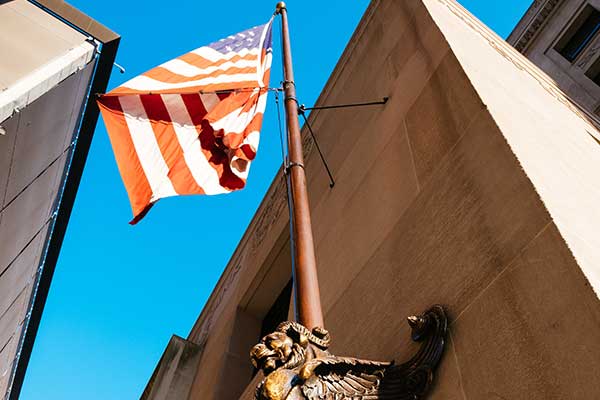
FAQs: About the Search
Find information about the presidential search process, including the composition of a Reserve bank search committee, public information, and the roles and responsibilities of Reserve banks and their leaders.
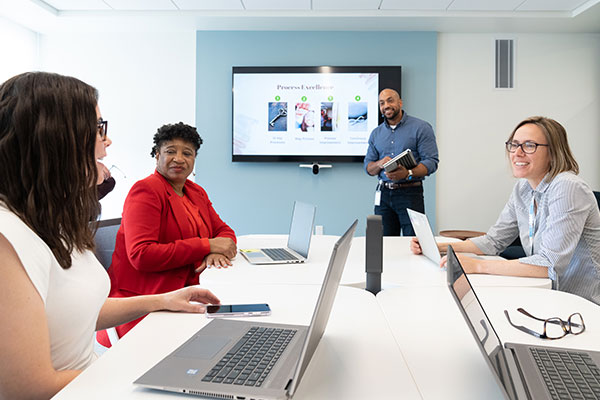
About the St. Louis Fed
At the St. Louis Fed, our teams excel through bold leadership and innovative thinking. In addition to promoting a healthy economy, our people foster a sound financial system, provide thought leadership on timely economic issues, engage in community development, and more.

